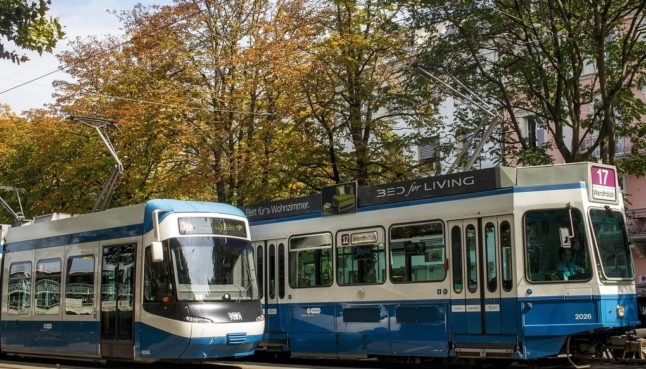Though the official language in the canton of Zurich is German and the Swiss make frequent use of Hochdeutsch (or Schriftdeutsch) both at school and work, standard German is very much regarded as a foreign language and only used outside one’s four walls.
Instead, the Zürchers use the – to foreigners intimidating-sounding – Züritüütsch with friends and family, a dialect they regard as an inherent part of their identity.
So, if you’re trying to make friends with locals and show them you are serious about your life in Zurich, it is always a great idea to learn a few essential words and phrases to get you started in your Zurich dialect learning journey.
Grüezi, Salü, Hoi
If you’ve recently moved to Zurich, chances are it won’t be long before you’re off on your first Sunday stroll. Though the Zürchers may not have a queuing culture, they do place a great deal of importance on greeting one another when out and about – even if you’ve never met the person across from you.
So, if you encounter a stranger on walks, in lifts, or even in a taxi, a friendly (but formal) Grüezi will not only make you appear polite, but it will be greatly appreciated by the Swiss as foreigners tend to forgo Swiss German altogether.
However, you can take a more laidback approach with friends and family where a casual Salü and Hoi will suffice.

Imfall…
When learning a foreign language one of the main goals is to speak the lingo like a local. In order to do that quickly, it’s helpful to make using key slang words a habit from day one. In Zurich, the word ‘Imfall’ is often used as a – meaningless – filler word mostly by the Swiss youth.
However, if you’re familiar with standard German and happen to be an adult, ‘Imfall’ may also remind you of the German word combo ‘Im Fall’ (in case). Though similar sounding, in Swiss German ‘Imfall’ is often used to either stress the beginning or end of a phrase, or highlight a specific sentence. Whichever way you choose to use it, it’s sure to make you sound like a seasoned local.
READ ALSO: Is it better to learn Hochdeutsch or Swiss German?
Bin nu am luege, merci
Whether you’ve recently moved to Zurich or are a long-term resident, you are guaranteed to be bombarded by a slew of sales assistants when frequenting Zurich’s many shops on the weekends.
The easiest – and very Zurich – way to make them disappear in a jiffy and impress your new Swiss friends is to turn around and say ‘bin nu am luege, merci’, which translates to ‘I am just browsing, thanks’.
In Züritüütsch, ‘luege’ means ‘to look/watch’ and this phrase – which should always be accompanied by a smile and direct eye contact – is generally considered very polite.
Im Momänt isch guet, tanke
Living in Zurich you will no doubt want to make the most of its top-notch restaurants whether that be out on a date, with a friend, or a client.
A good restaurant not only serves great food, but it also delivers excellent customer service, which means that the odd server is bound to show up at your table to check you have everything you need, and while you may choose to quench your thirst once or twice, you’ll likely want to ensure your server that all is well for now, in which case you’d say: ‘Im Momänt isch guet, tanke’ (at the moment everything is fine, thanks).
If you happen to meet a friend for a pint at a pub, remember to say ‘Zum Wohl!’ before you take a sip to toast to health.
Tuttswitt
Life in a city as hectic and crowded as Zurich can feel overwhelming at the best of times and you may find your patience running out by the time the clock strikes 5 pm. In this case, Zürchers use a handy little word to speed things along, namely ‘tuttswitt’, which means immediately.
So, if you’re feeling worn out after a long day’s work and need something done right away, let the person know that you’d like to be home ‘tuttswiit’ and call it a day.
READ ALSO: Seven things to know if you’re learning Swiss German
Es bitzeli
After getting comfortable with a few basic words in Züritüütsch, you may want to branch out slowly and try stringing two words together – especially if the idea of a whole sentence still scares you.
A good way to try this out is by making replying with ‘es bitzeli’, which means ‘a little bit’, an everyday habit. You can respond with ‘es bitzeli’ to pretty much any question, be it ‘Are you liking this movie?’, ‘Are you nervous about your job interview?‘, or ‘Are you happy to live in Zurich?’. Well, es bitzeli.
Äxgüsi
Granted, not the easiest word to pronounce, however, you will hear the Swiss brush past you with a rushed ‘äxgüsi’ on the regular. The word simply means ‘excuse me’ and is borrowed from the French excusez-moi.
So, if you’re trying to walk past someone and not come across as rude, a well-meant äxgüsi is your best bet to avoid a disagreement.
Adie
When leaving a shop, client meeting, or doctor’s appointment, you may find yourself questioning just how one says goodbye the Zurich way.
Well, you’ll be happy to find that a long-winded ‘Auf Wiedersehen’ is not what’s commonly said when parting ways in Zurich. Rather, use ‘Adie’ when leaving a formal setting. With friends and family, you’d use a simple ‘tschüss’.



 Please whitelist us to continue reading.
Please whitelist us to continue reading.
Member comments